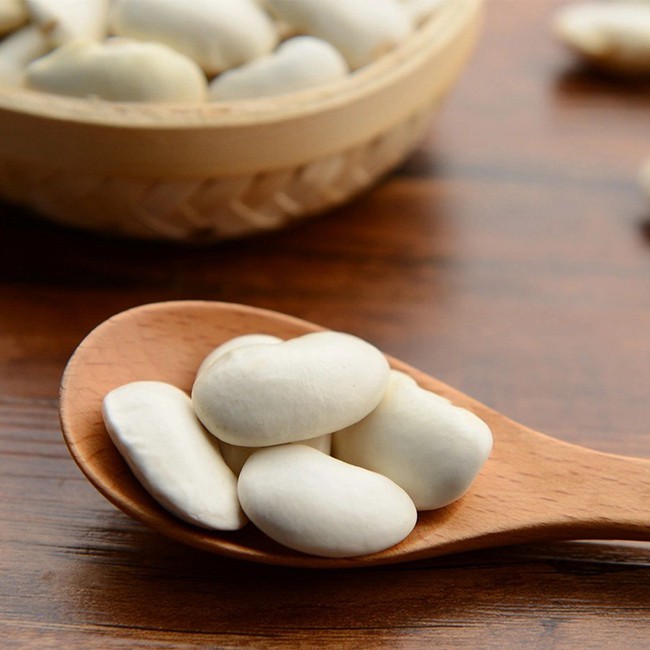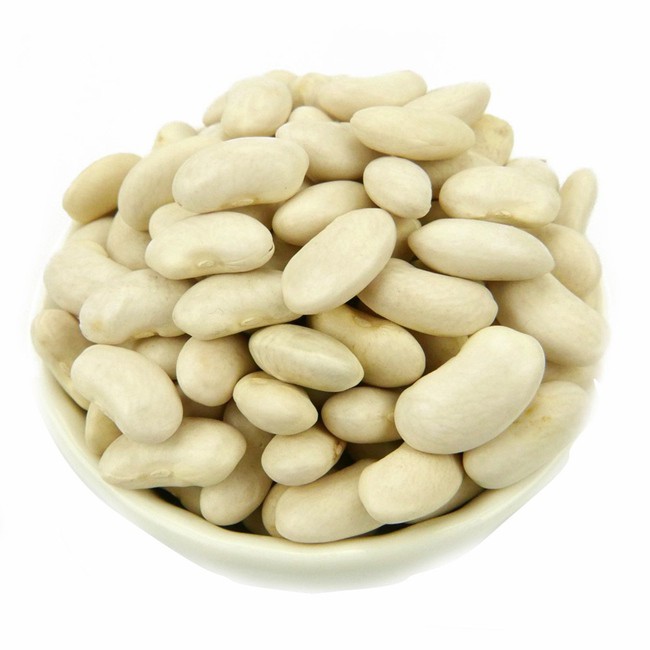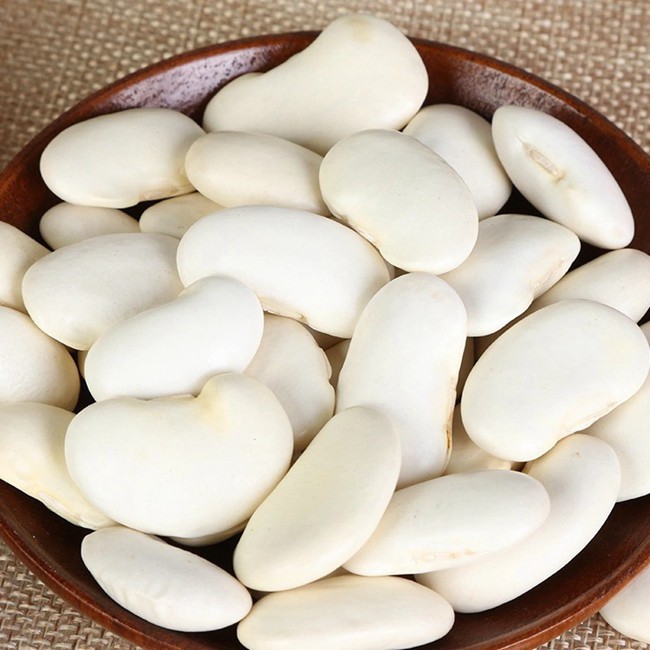Welcome!







High Quality Origin Natural White Kidney Beans From China Food
Product Description
White kidney beans can be eaten by soaking in water, cooking Congee, stewing, milling or making snacks. Among them, soaking in water can make the nutrients more easily absorbed by the body; Cooking Congee and stew can give full play to their nutritional value; After grinding, it can be directly brewed and consumed or added to flour to make pasta; When made into snacks, it is convenient to carry and suitable for consumption on the journey.

The saponins in white kidney beans can reduce fat absorption, promote fat metabolism, and dietary fiber can accelerate the passage of food through the intestines, helping to lower blood lipids. It is particularly suitable for patients with arteriosclerosis and cardiovascular disease. White kidney beans are rich in dietary fiber, vitamins, and minerals, which can promote gastrointestinal peristalsis, accelerate detoxification, promote skin metabolism, and help with beauty and beauty.

Kidney beans have a short growth cycle and wide adaptability to soil and climate, making them one of the favorite crops for farmers. Its drought and barren resistant characteristics enable it to achieve good harvests in various environments. As a leguminous plant, Yundou has symbiotic nitrogen fixing bacteria in its roots, which can naturally improve soil fertility, reduce fertilizer use, and be environmentally friendly. At the same time, its efficient photosynthetic capacity has also contributed considerable biomass to agricultural production.

In the colorful vegetable world, kidney beans stand out with their unique form and rich nutritional value, becoming a popular healthy ingredient on the dining table. Kidney beans, also known as kidney beans, kidney beans, or jade beans, belong to the annual herbaceous plant of the legume family and the kidney bean genus. Their pods contain plump and brightly colored beans, which are not only delicious but also contain various nutrients needed by the human body.


Recommended Products
Recently Viewed
 China Factory Export Dry Natural Organic Sugar White Kidney Bean From China Food
China Factory Export Dry Natural Organic Sugar White Kidney Bean From China Food Wholesale Dried White Kidney Beans 200-230 with Superior Price and Quality
Wholesale Dried White Kidney Beans 200-230 with Superior Price and Quality China Factory Origin Natural White Kidney Beans From China Food
China Factory Origin Natural White Kidney Beans From China Food Factory price New Crop Light Speckled Kidney Bean with Superior Price and Quality
Factory price New Crop Light Speckled Kidney Bean with Superior Price and Quality Wholesale Dried White Kidney Beans 200-230 with Superior Price and Quality
Wholesale Dried White Kidney Beans 200-230 with Superior Price and Quality
Contact Us
XIAMEN SINOFROST CO., LTD.
